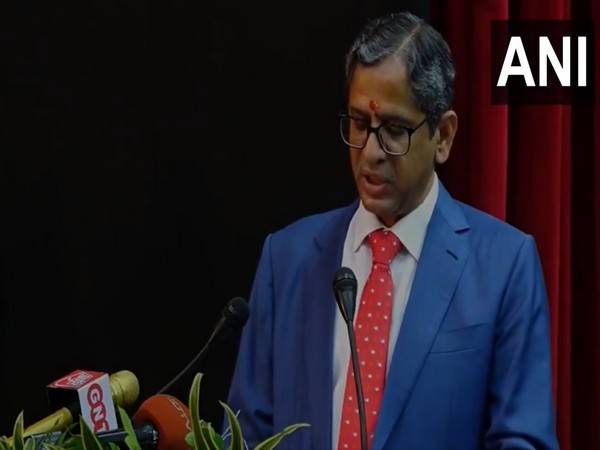N.V. Ramana also said president Ram Nath Kovind has constantly encouraged the entry of women into the profession and also called for increased representation of women in the judiciary….reports Asian Lite News
Chief Justice of India N.V. Ramana on Saturday said the legislature does not conduct studies or assess the impact of the laws that it passes, and this sometimes leads to big issues.
Speaking at the second day of the valedictory ceremony of Constitution Day celebrations organized by the Supreme Court, Justice Ramana said: “The legislature does not conduct studies or assess the impact of the laws that it passes. This sometimes leads to big issues. The introduction of Section 138 of the Negotiable Instruments Act is an example of this. Now, the already burdened magistrates are further burdened by thousands of these cases”.
He added that rebranding the existing courts as commercial courts, without creating a special infrastructure, will not have any impact on the pendency. “Therefore, the issue of pendency is multifaceted in nature. I hope the government takes into consideration the suggestions received during these two days and resolves the prevailing issues”, said Justice Ramana.
He said president Ram Nath Kovind has constantly encouraged the entry of women into the profession and also called for increased representation of women in the judiciary. He added that the Attorney General K.K. Venugopal’s suggestions on the first day of the event, were also enlightening. “While highlighting the issue of judicial pendency, he proposed the restructuring of the judicial system and altering the hierarchy of the Courts. This is something that merits consideration by the Government”, said the Chief Justice.
He emphasized on clearing misconceptions that many people in this country believe that it is the courts which make the laws. “Another set of misunderstandings relate to the belief that the Courts are responsible for liberal acquittals and adjournments. However, the truth is that the public prosecutors, advocates and parties – all have to co-operate with the judicial process. Non-cooperation, procedural lapses and faulty investigation cannot be blamed on Courts”, he added.
Citing law minister Kiren Rijiju that government has been allocating substantial amounts for development of judicial infrastructure, Justice Ramana added funds are not the problem, instead the problem is with some of the states not coming forward to match the grants. “As a result, the central funds largely remain unutilised. That is the reason why I am proposing a special purpose vehicle of Judicial Infrastructure of Authority. I beseech the Minister to take this proposal to logical conclusion. I also urge the minister to expedite the process of filling judicial vacancies”, said Justice Ramana.
On Friday, the Chief Justice said the laxman rekha drawn by the Constitution is sacrosanct. “But, there are times when courts are compelled to pay attention to unresolved grievances, in the interest of justice. The intention behind such limited judicial interventions is to nudge the executive, and not to usurp its role. The Constitutional obligation and duty of the judiciary to intervene needs to be appreciated in this context”, he said.

Leave a Reply